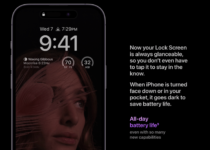Why the Worst Products Win: The Ugly Truth About Hype vs. Quality
Ever wondered why garbage products, courses, or services tend to explode in popularity, even while better options quietly collect dust?
Simple truth: hype sells.
Quality alone often doesn’t stand a chance.
You can blame desperation and hope — the toxic twins of marketing psychology.
Consumers aren’t idiots; they’re just human beings under pressure. Logic takes a backseat when desperation kicks in. People cling to “life-changing” promises, even when their gut knows better.
And honestly, it’s hard to blame them. When someone feels stuck — financially, emotionally, creatively — they’re not shopping with logic. They’re shopping with urgency. They want to believe there’s a shortcut.
Something fast. Something proven. Something that promises the pain will stop.
So when a creator posts yet another testimonial with a caption like, “This could be you,” people click. Not because they’re gullible — because they’re tired of hoping the hard way.
When Hype Sells — and Quality Gets Buried
Take Digital Wealth Academy — my favorite punching bag (check out my full roast here). They nailed the hype formula perfectly: fake urgency, shameless FOMO, and income claims outrageous enough to make Warren Buffett cringe. Their promises of easy riches shouted louder than reality ever could, while their actual content was thinner than cheap motel coffee.
And yet — people keep buying it.
Not because the value is there. But because the vibe is. The massive affiliate push. The vague implications of freedom and fast results. The endless reposts and testimonials flooding your feed.
What most people don’t realize is that many of those “happy buyers” are actually resellers. They’re not promoting it because it’s good — they’re promoting it because it pays. It’s not just hype. It’s engineered amplification. And when 100,000 people are shouting the same message, it feels safer to join than to question it.
Meanwhile, genuinely good programs get ignored.
Take How to Sell in a Nutshell, for example. It’s a brilliant mini-course — clear, direct, no BS. It lays out the fundamentals of sales psychology without overpromising or bloating the content. No “10x your income” hype. No fake scarcity. Just solid, foundational teaching that actually helps people sell better. And yet? It has fewer than 1,000 buyers. Because it’s not built for virality. It’s built for value. And in the current ecosystem, that’s not what wins.
So What Can Honest Creators Actually Do?
First: weaponize humor — but make it sharp.
Humor is your sniper rifle: precise, memorable, and lethal to nonsense. It lets you call out the BS without sounding bitter. For example:
“Only 3 spots left!”
(For a pre-recorded course? Are we running out of pixels? 😂)
Instantly, you’ve disarmed the hype and reminded your audience you’re not playing games.
Second: highlight real, tangible results.
Something like screenshots of someone getting their first client — not a rented Lambo. Noise fades fast, but trust sticks. Share authentic stories, backed by outcomes — not vague “life-changing” testimonials that sound like they were written by ChatGPT on sugar.
And finally: be brutally transparent.
Honesty is magnetic. Especially to people who’ve been burned.
You might lose a few impulsive buyers along the way, but what you gain in loyalty and credibility will outlast every flash-in-the-pan course launch you’re competing with.
Bottom Line?
Hype might steal the spotlight for a while.
But quality — paired with wit, honesty, and actual substance — builds something hype can’t: trust.
You don’t have to sell your soul to sell your work.
Pixels aren’t scarce.
But integrity sure as hell is.
You can fuel future rants, reflections, and no-BS breakdowns by buying me a coffee here. No pressure. But let’s be real — caffeine = more content. 😉


